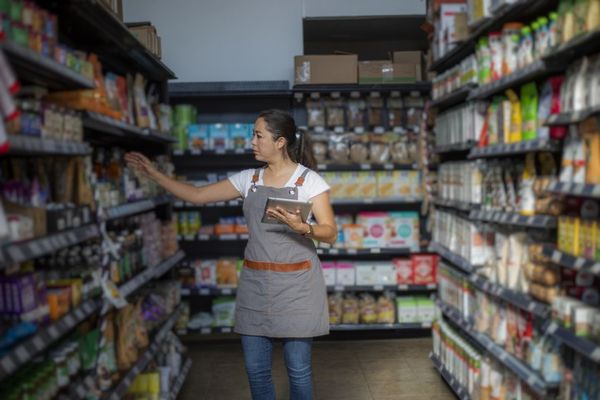Essex Police said they have arrested over 60 people and secured nearly 180 shop theft charges in the last two weeks.
Of the 62 people arrested on suspicion of shoplifting, 36 people have been charged so far with a total of 179 offences of shop theft plus three assaults.
One of them, Dawn Brooker, 39, of Hertford Road, Waltham Cross, Hertfordshire, has been charged with 51 offences, spanning five months.
One man has already admitted 21 counts of shop theft from the Co-op store in Old Harlow High Street between 18 December 2023 and 11 February.
And a Chelmsford woman has been jailed for a year for stealing from shops and for damaging a police cell. Another Chelmsford woman has been charged with 12 counts of shop theft and one of attempted theft from John Lewis in the city’s Bond Street.
Meanwhile, two Basildon brothers have been sentenced for stealing from shops in Pitsea and South Ockendon. One has been jailed and the other received a suspended prison sentence.
Three persons have additionally been charged with assaulting a shop worker. And two were charged with breaching criminal behaviour orders (CBO) previously imposed on them.
One, Kerry Arloff, 33, of Nickleby Road, Chelmsford, was jailed for 24 weeks on 24 February by Chelmsford magistrates for breaching a five-year CBO imposed on 29 January this year.
The second, Charlie Hunt-Wragg, of High Street, Maldon, has been remanded on bail to appear at Chelmsford Magistrates’ Court on 9 April. He is charged with two counts of shop theft from the Co-op in New Street, Chelmsford, and two counts of breaching a three-year CBO imposed in August 2023 which banned him from entering any Co-op store in the city of Chelmsford.
Between 1 January and 25 February 2024, officers have made a total of 250 arrests for shop theft.
“People rightly expect to feel safe at work and when they are out shopping. Shoplifters threaten that sense of wellbeing,” Sergeant Christian Denning, of Essex Police’s specialist Business Crime Team, said. .
“People steal from shops for many reasons but their effect on the people they encounter, whether that be retail staff or customers, is the same.
“We always seek to secure charges where we can and we apply to the courts for criminal behaviour orders in the cases of more persistent offenders, seeking bans from the stores they target the most.
“But we also recognise that some people steal to feed an addiction. So we work with partner agencies to try to divert offenders from dependence on drugs and alcohol which is at the root of their criminal activity.
“Everyone arrested for shop theft in Essex is required to take a test for Class A drugs and, if they test positive, they are required to attend an assessment with one of the three drugs treatment charities we work with.
“Criminal behaviour orders can also include requirements to attend drug and alcohol treatment sessions.”
Eight people tested positive in custody in the last two weeks for cocaine, crack cocaine or heroin and will be required to attend an assessment with a drugs treatment worker.
Five people were cautioned for shop theft. Three agreed to community resolutions. Cases involving seven others are still being investigated and 10 arrests resulted in no further action.




















